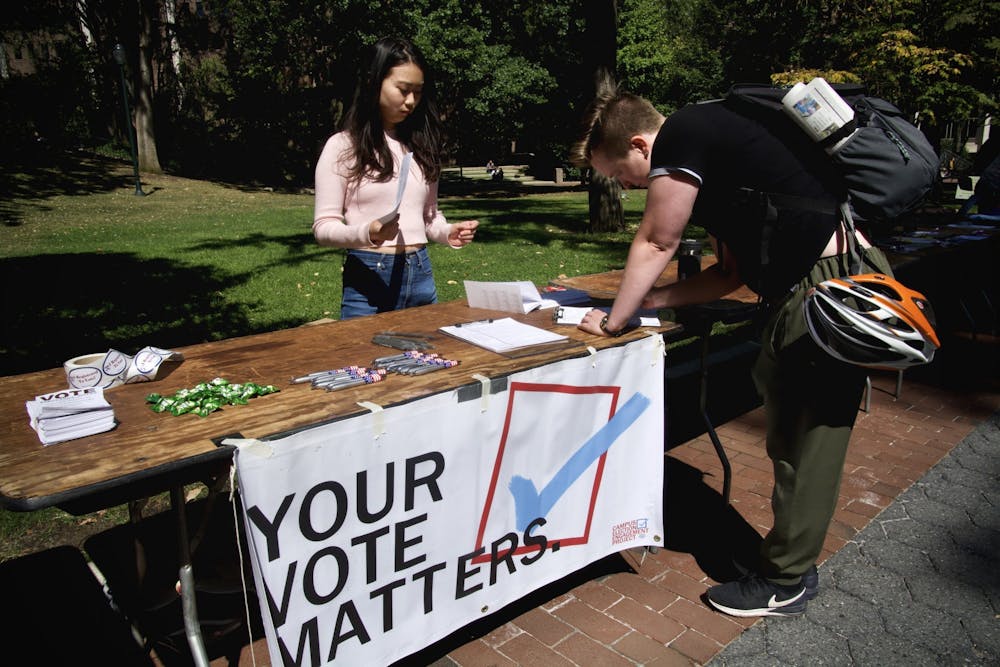
Penn Leads the Vote students leaders have been advocating to include the perspectives of younger voters throughout Pennsylvania's redistricting process.
Pennsylvania's redistricting process is nearing an end after months of disagreement between Democrats and Republicans responsible for drawing district maps. Redistricting determines how Pennsylvania voters are split among the 18 congressional districts and 253 state legislative districts, and maps are redrawn every 10 years based on new Census data.
PLTV — a nonpartisan, student-run political program on campus — has taken an active role in the redistricting process – focusing on educating students on the redistricting process and the importance it plays in elections.
“[Penn Leads the Vote] is very attuned to this process of redistricting, even though we aren’t explicitly voting on something like this,” College senior and PLTV co-director Harrison Feinman said. "[Redistricting] has a huge impact on voting and making sure our democracy is fair and representative."
College senior and PLTV co-director Eva Gonzalez said that districts must be equal in population and are supposed to be split fairly. Gonzalez added that keeping district maps representative and fair is important for voting integrity and equal representation but can become a difficult process when each party tries to redraw the map in its favor.
Feinman and Gonzalez submitted a written testimony on behalf of PLTV to the Pennsylvania State House Government Committee for the Philadelphia Regional Redistricting Hearing that occurred last October. This testimony urged members of the House to consider the perspective of the youth and college students in the redistricting process.
In the written statement, PLTV suggested that the committee hold a hearing on a college campus, meet with student leaders, or conduct information sessions to teach the youth about how redistricting works and how they can submit testimony and feedback in the process.
"After all, youth will live with the consequences of this commission’s decisions longer than any other group. Actively involving them now will ensure the long-term stability and integrity of our democratic processes," the statement reads.
As of now, both the congressional and state legislature maps have yet to be finalized, according to political science professor Marc Meredith. While Republicans have control in the House and Senate, Pennsylvania Governor Tom Wolf is a Democrat. Meredith said that this is causing a standstill, as Republicans and Democrats have been unable to agree on a new map.
As a result, the Pennsylvania Department of State created a deadline of Jan. 24 for these maps to be submitted, so that the districts have enough time to update voter registration prior to the May primaries.
If a map is not selected by this normal process by Jan. 30, then one will be imposed by the court.
The map for Pennsylvania’s congressional districts must be passed by both the House and Senate, and then signed by the governor.
Gonzalez said that she hopes students stay active and engaged in the redistricting process by reading local news and supporting initiatives that ensure their voices are being heard, especially if they believe that the maps are being drawn unfairly.
She added that it is especially important for Penn students to care about this process because they should look out for other members of the West Philadelphia community.
“We want to make sure that other members of our community who are going to be living here for years to come are going to be able to have an equal say in who represents them in Congress,” Gonzalez said.
The Daily Pennsylvanian is an independent, student-run newspaper. Please consider making a donation to support the coverage that shapes the University. Your generosity ensures a future of strong journalism at Penn.
Donate







